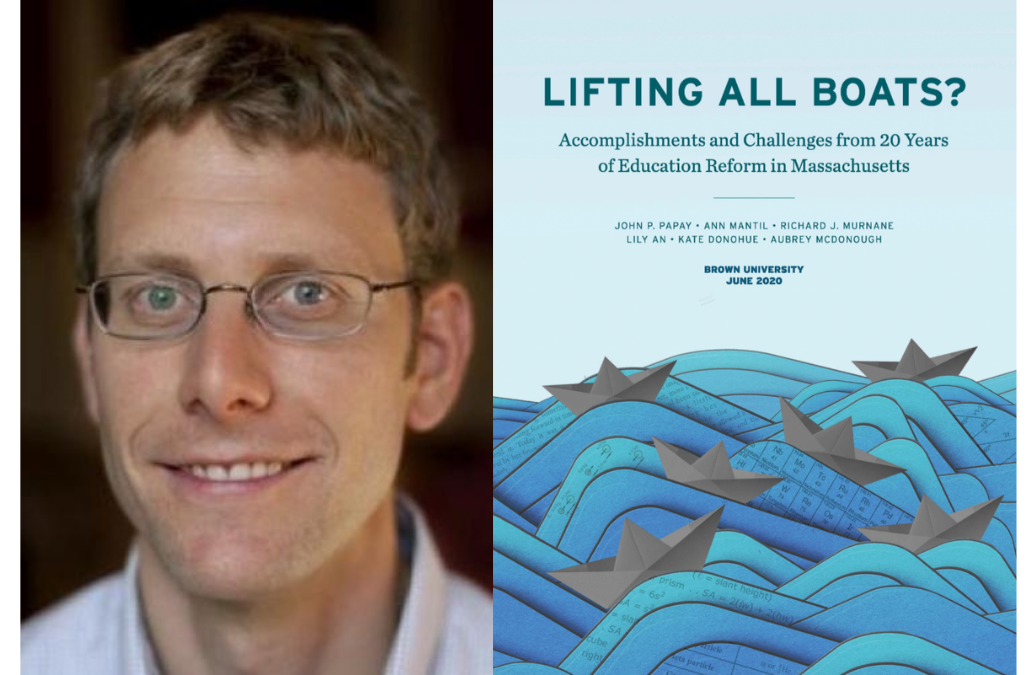Engaged Faculty Spotlight: John Papay

Left: John Papay
Right: "Lifting All Boats?" Cover Report
John Papay, Associate Professor of Education and Economics, arrived at Brown University in 2012 after eight years at the Harvard Graduate School of Education and three as a high school history teacher and basketball coach. An author of numerous peer-reviewed publications, Papay has received awards from the American Educational Research Association and other scholarly organizations. His reports for state agencies and policy think tanks and essays in major newspapers made him one of three Brown faculty recognized on a 2021 list of “university-based scholars in the U.S. who did the most last year to shape educational practice and policy” (and not for the first time). His scholarship contributes to public understanding and action on issues including teacher hiring, retention, professional development, and diversity.
Many of these accomplishments have grown out of what Papay calls “deep research-practice partnerships” that begin with developing “a shared research/learning agenda.” Local partners attest to the depth and quality of his collaborative approach. Zachary Scott, Deputy Superintendent of Operations in the Providence Public Schools, describes Papay as patient, responsive, and empathetic; “eager to ensure that all relevant stakeholders...have a voice in the research process,” he “first seeks to listen carefully” and doesn’t consider his work done when the data have been analyzed. Instead, he continues thinking with stakeholders about translating research into real changes that can improve outcomes. Christopher Gabrieli, chairman of the Massachusetts Board of Higher Education, has “never seen an academic invest more time and show more skill in making the work [of research projects] comfortable and feasible for the stakeholders than John.”
A collaborative researcher since graduate school, Papay sees mutual benefit in that investment. “Having detailed conversations with stakeholders'' yields fresh insights and shapes “our understanding of specific data elements and key questions that would be useful at any given moment.” Seeing how engaged research has contributed to policy and practice, as well as to knowledge in the field, keeps Papay motivated. As part of the leadership team for the new Research Partnership for Professional Learning, he brings this commitment to a national collaborative focused on, “how to support teacher professional learning that leads to equitable student outcomes for historically marginalized students.”
